Guiding principles
Christina McAnea became the first woman to lead Unison, the UK’s largest trade union, in early 2021. Tommy Newell gets her view on principles vs pragmatism, modernising post-pandemic and why she’s “hugely impressed” by the civil service.
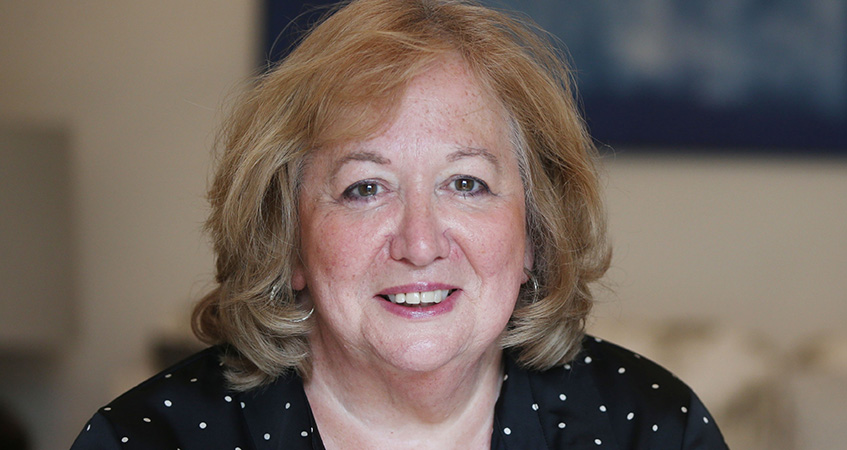
With over 25 years’ experience as a negotiator, Christina has dealt with most of the sectors covered by Unison, handled national pay negotiations and led national strikes. Throughout this time, she has been led by a “guiding principle” of getting the best deal to benefit members.
“You can take a principled decision if it’s the right thing to do but, at the end of the day, the members don’t pay me to walk away from negotiations,” she explains. “They don’t pay me to take them out on strike. They pay me to do a deal that gets them the best we can… As a negotiator you have to be prepared to go in there, get your hands dirty, take some difficult decisions, be able to persuade people and take them with you.”
This pragmatic approach to negotiations has shaped Christina’s career as a trade unionist. She’s clear that strike action is “not an end in itself” but should always be “a means to an end”. “You don’t ask people to give up pay and take strike action unless you think you can get something out of it.”
Christina’s interest in politics was formed at a young age. She explains that her parents – her mother a dinner lady and father a labourer – “never joined a political party but were both political”. She grew up on the Drumchapel council estate in Glasgow and remarks that the FDA’s General Secretary Dave Penman will be familiar with it, having grown up on the outskirts of Glasgow himself. She assures that to be a good General Secretary “I don’t think you have to be Glaswegian, but it definitely helps”.
However, it’s not just Dave’s background that she holds in high regard. “I’m seriously not just saying this, I’m always hugely impressed by the civil servants I meet,” she explains. “I’m really grateful to think that there’s something about that ethos of working in the public sector that still attracts really good people into it.”
“Having a good relationship with civil service unions, especially the FDA, is important”
Christina describes the FDA’s membership as “people whose opinions matter and who make a difference to society”. She stresses that “having a good relationship with civil service unions, especially the FDA, is important” to her and the union she leads.
“I think the fact you’ve got an organisation like the FDA recruiting senior civil servants – and recruiting them well – is really important,” she says. “Because you want to keep that understanding and commitment to the values of trade unions and to see us as part of society, not part of a problem to be dealt with, but part of the people who make things happen and make a difference in the world.”
This positive relationship between Unison and the FDA is exemplified by the unions’ joint venture, Managers in Partnership (MiP), a specialist union for managers and other senior staff working in health and care services. As the former head of health at Unison, Christina has worked closely with colleagues in MiP.
“I’ve been hugely impressed by the work we’ve been able to do between us, FDA and Unison, in forming that organisation and being able to reach out to senior staff, particularly within the NHS but we’re now moving into the care sector as well.”
According to Christina, having an understanding of the work of trade unions throughout all levels in the NHS has been beneficial for her members. “Having that joint understanding, I know from Unison members that that’s hugely important. It can be very effective in actually finding a way through difficult problems and difficult situations. It’s a model I’m keen to look at expanding within Unison and whether we can have something similar for some other senior groups across our membership.”
She also believes that unions must play a key role to support managers in work around equalities, “to ensure we get a strong voice for women, for disabled workers, [and] for black workers at every level”. She acknowledges this isn’t “unique to unions” but highlights the “strong commitment” that both the FDA and Unison have to it.
“The work that we do running training courses, giving support, mentoring, the advice and guidance that we put out on those wider equalities issues I think is all really helpful in trying to ensure that senior managers are equipped to deal with these issues,” she says. “They can fall back on the support of their union personally but also professionally; they can get support in terms of how you deal with some of the difficult issues in the workplace.”
Of course, since the COVID-19 pandemic hit, it has been the key challenge facing the country and Unison is no different. While a number of people have found themselves having to adjust to new ways of working during the COVID-19 pandemic, Christina had to adjust to the rather unique experience of a completely virtual campaign to become General Secretary.
“It made the election interesting, in some ways,” she explains. The virtual nature of hustings meant that Christina “wasn’t having to run around the country” but this actually allowed her to do an “awful lot more hustings” because they were online, sometimes managing to fit in as many as four in a day.
Giving an honest reflection on the experience, she said that it did take “a bit of getting used to”. “In a sense it’s like doing a job interview over and over with the other candidates next to you on the same screen,” she added. “The challenge was that you’re never sure whether you’re getting the same engagement online as you would if you were sitting in a room, because you could read your audience better.”
Despite these concerns, Christina clearly did manage to engage her audience, securing the necessary nominations and eventually being elected on 11 January 2021 as the first woman to be General Secretary of Unison.
“How do we cope with coming out of the pandemic? What will the world look like after it? Not just the world of work but society as we come through it? For me, a big part of that is to make sure the voices of our members are heard in that discussion about what the future looks like.”
Taking up post during England’s third national lockdown, COVID-19 has dominated her first few months in the job and Christina says it will remain the union’s “first priority”.
In the short to medium term, the UK’s economic recovery and investment in public services will lead Unison’s agenda. On the subject of public sector pay, Unison has been “very clear” in the message it’s taking to the governments across the UK: “Now is not the time for a pay freeze.”
“We’re trying very hard to make the case to say, this isn’t about setting private sector against public sector or bits of the public sector against other bits of the public sector. This is about recognising that we’re all intertwined,” she explains. “We need a thriving economy, we need people to be at work so they can pay taxes that keep our public services going but, equally, people who work in the private sector… they also need and rely on a thriving public sector.”
She is highly critical of the “under-investment in public services” that preceded the pandemic, which she argues has had “an impact on the ability of public services and their resilience to deal with any crisis”. For Christina, this simply isn’t something any government can afford to do again.
“You could see that in the way the NHS was dealing with it, you could see it in the way the care sector was dealing with it. The less funding they had, the less likely they were to be able to deal with it… This didn’t just happen in a vacuum, it happened at a time when we’d had 10 years of under-investment in public services. So, if the government continues with that, that will not make us stronger as a society to deal with the aftermath of COVID or indeed any future crisis that comes along.”
While the path to a post-covid world is becoming clearer, there are still many questions left to answer over the coming months and years, and Christina wants to make sure trade unions play their part to help answer them.
“How do we cope with coming out of the pandemic? What will the world look like after it? Not just the world of work but society as we come through it? For me, a big part of that is to make sure the voices of our members are heard in that discussion about what the future looks like.”
Digital communication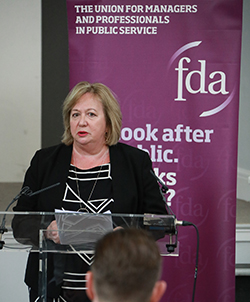

“The whole digital agenda is really interesting and one that we’re all having to embrace probably much quicker that we thought we would’ve.”
Like many organisations, Unison found itself having to quickly adapt to new ways in working in response to the pandemic, utilising new technologies and digital tools to reach and support members. While the idea of joining a union online isn’t anything new, COVID-19 has forced an even bigger focus on digital communication channels.
“We have to start thinking about how we actually reach out to members,” she explains. “Our traditional model of organising was you would send people into workplaces. So, we’d send people in to organise in hospitals or you’d send them out to meet up with care workers or you’d organise a meeting for school staff after school closed one day. That’s going to be impossible I think for this year and so we do have to adapt to that as a trade union. I think all unions are having to do that.”
While this transition brings challenges, it also presents opportunities to better understand audiences, as technology allows more tools to measure the impact of campaigns. “You can watch the patterns of when people are joining and you can see the impacts of initiatives you’re taking. So, if you’ve had a big issue that’s had a lot of media coverage, what impact has that had? If we run a TV advertising campaign, what difference does that make?”
The changing world of work
The nature of Unison’s membership means that many members do jobs that have to be done in person – “if you’re a cleaner or you work in a canteen, you can’t work from home, you have to be there to do it” – but there is a “huge swathe of people who are now more familiar with working from home”. For these members, the increased prominence of remote working has had a significant impact on their working lives.
“What does that mean for them in terms of productivity and employers’ expectations? What do they need to be effective at home?”
These are questions many organisation are now asking themselves and Christina explains that unions will have to start reaching “different types of agreements” with employers to reflect this new reality.
“There’s a bit of a learning curve for us all as trade unions I think and the best thing would be to learn from each other,” she adds. “I know the FDA has done some great deals recently with some of the big employers you deal with in terms of getting agreements around working from home.”
Related News
-
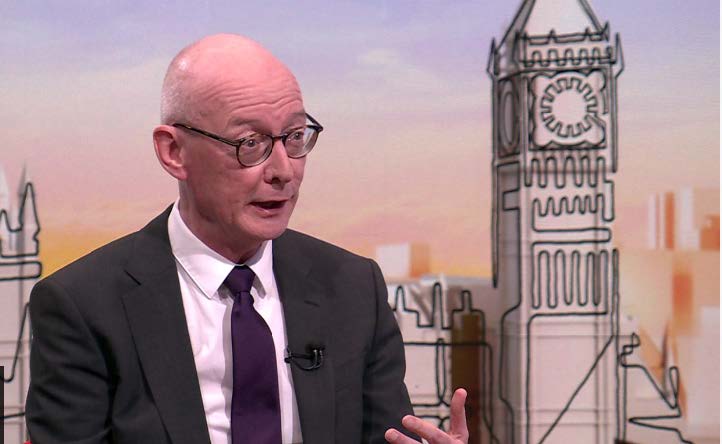
Meaningful reform
It’s time to lead the civil service, not just the morning news round, says Dave Penman.
-
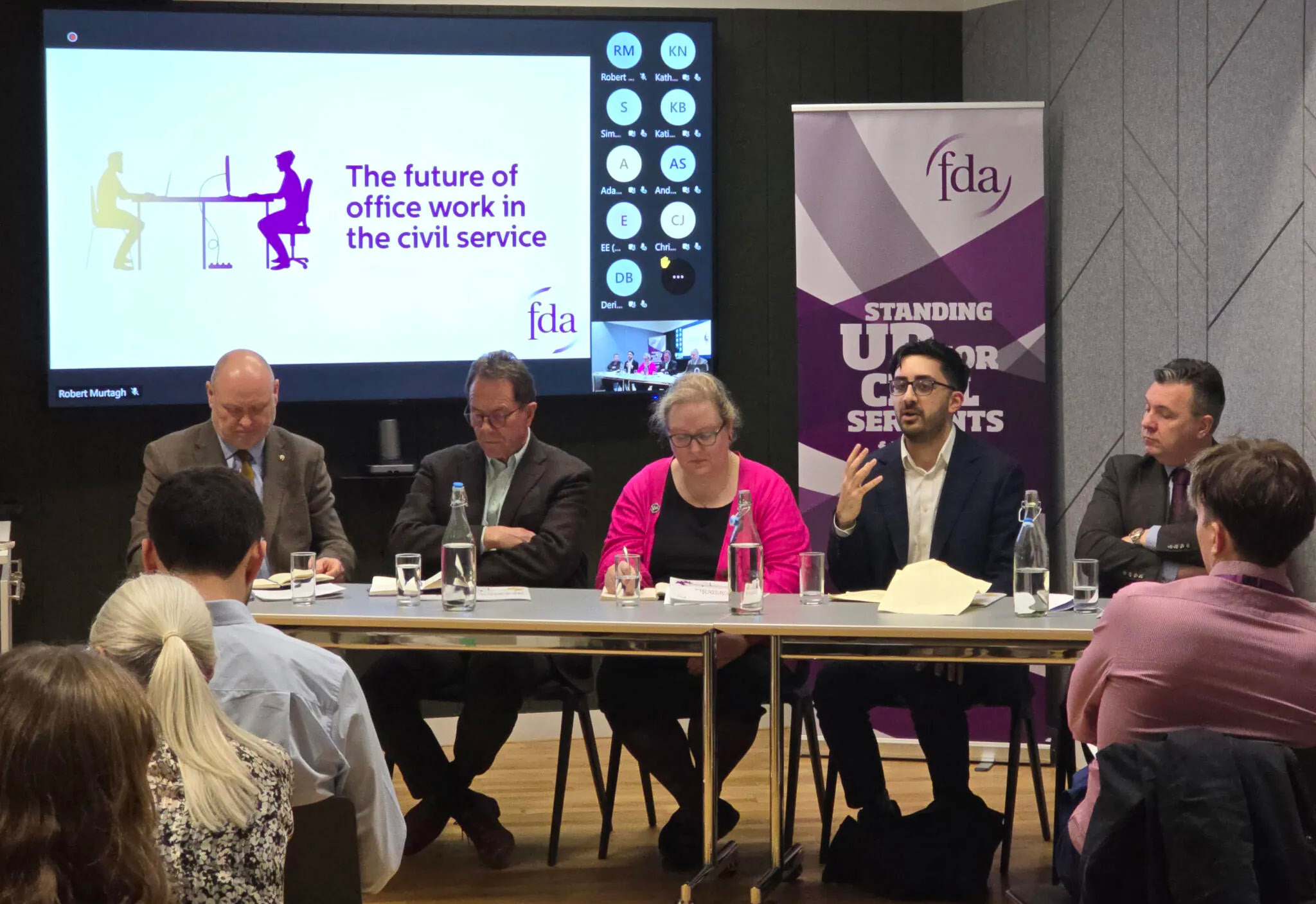
Hybrid working: Led by evidence, not headlines
Tom Nathan shares the findings and recommendations of the FDA’s recent report on ‘The future of office working in the civil service’.
-
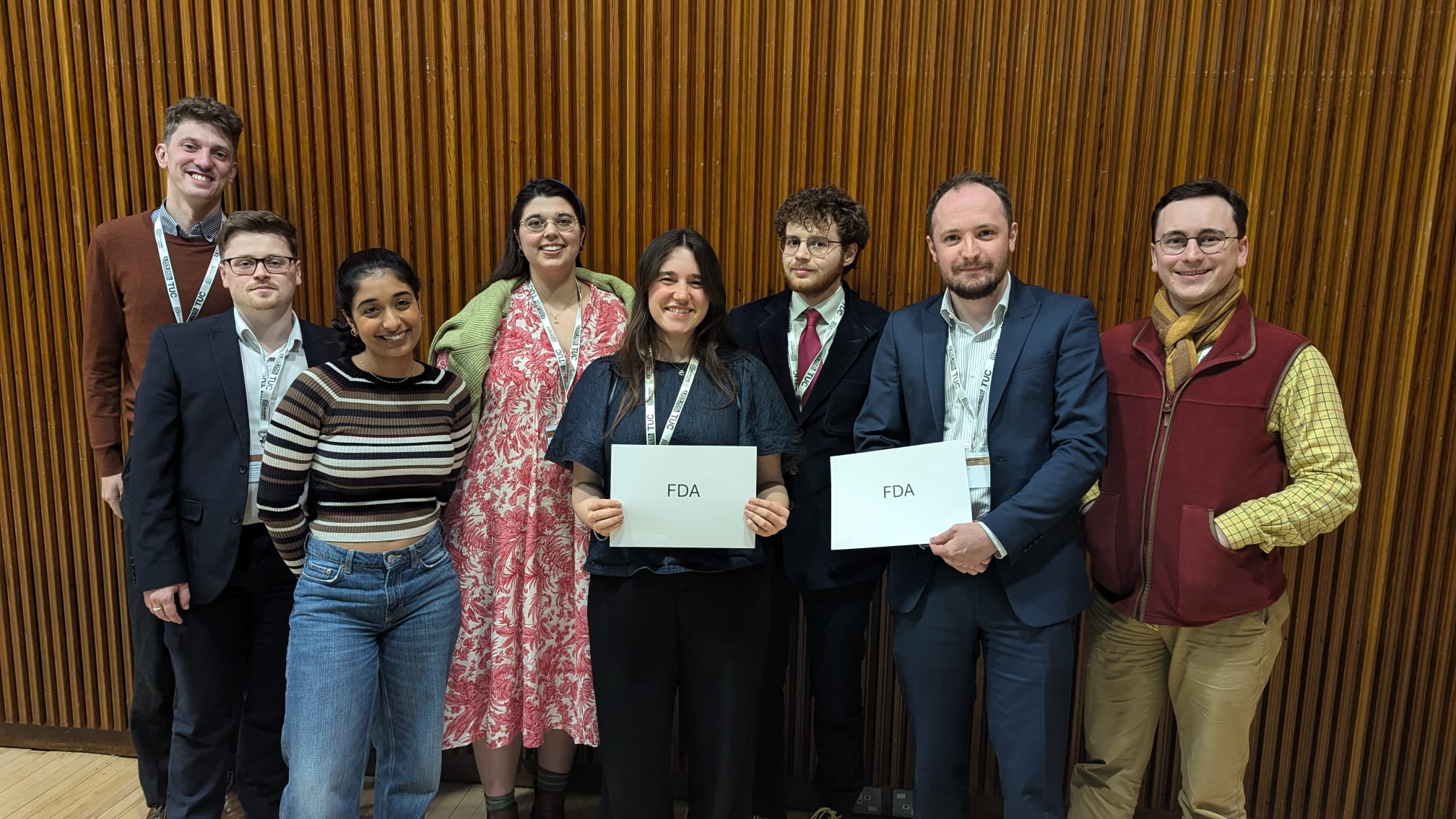
FDA attends TUC Young Workers’ 2025
This March, an FDA delegation attended the annual TUC Young Workers’ Conference in Congress House, London.